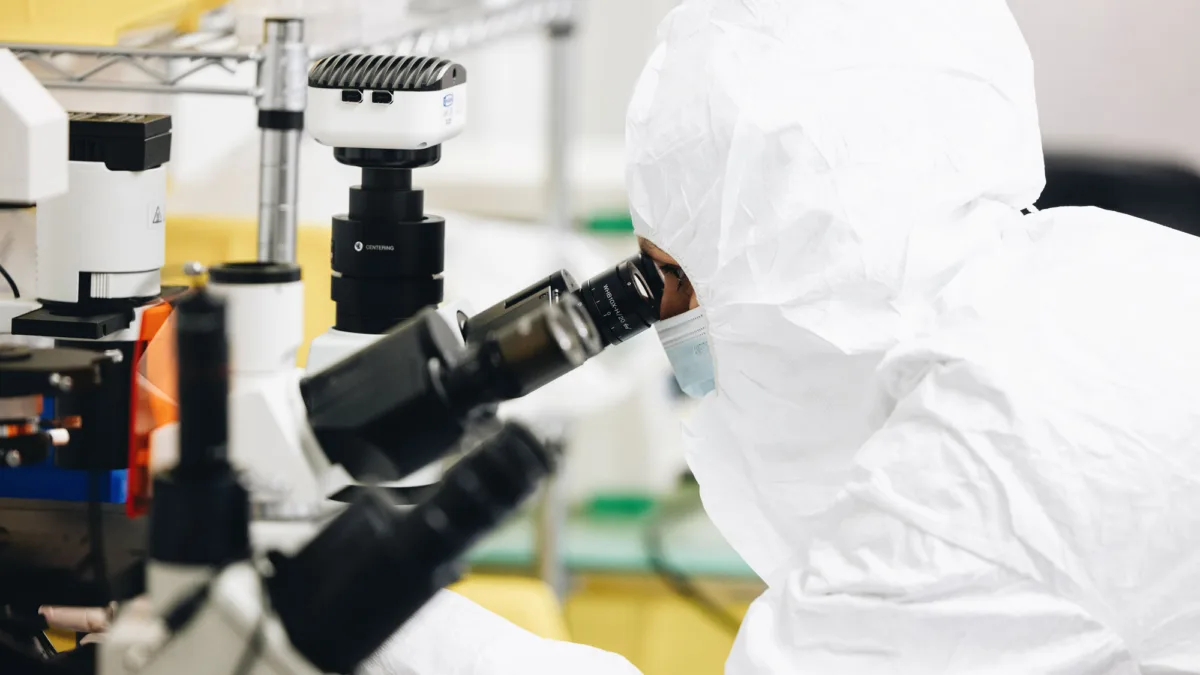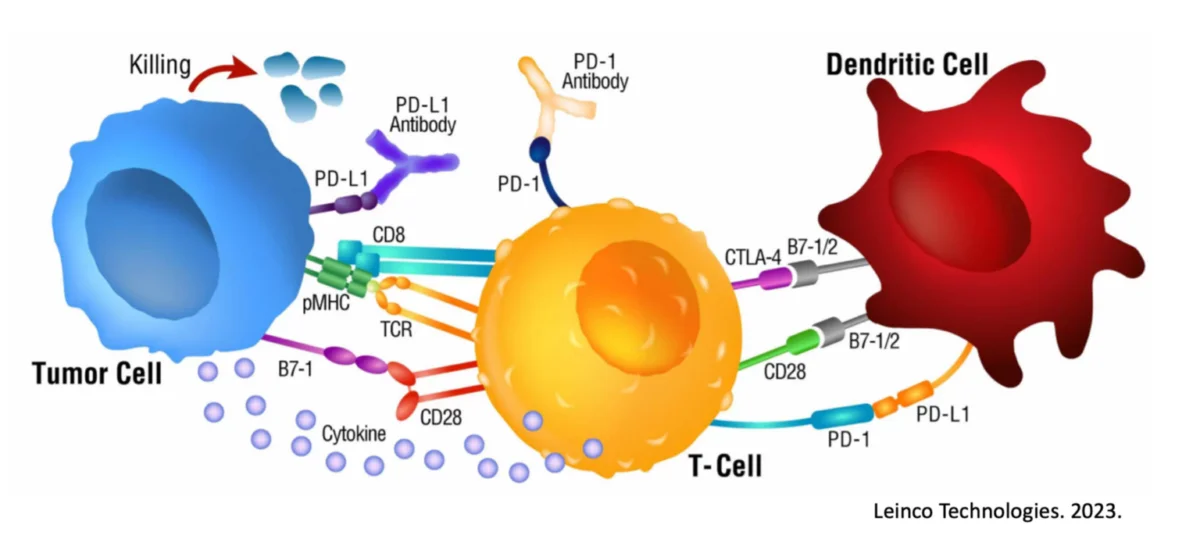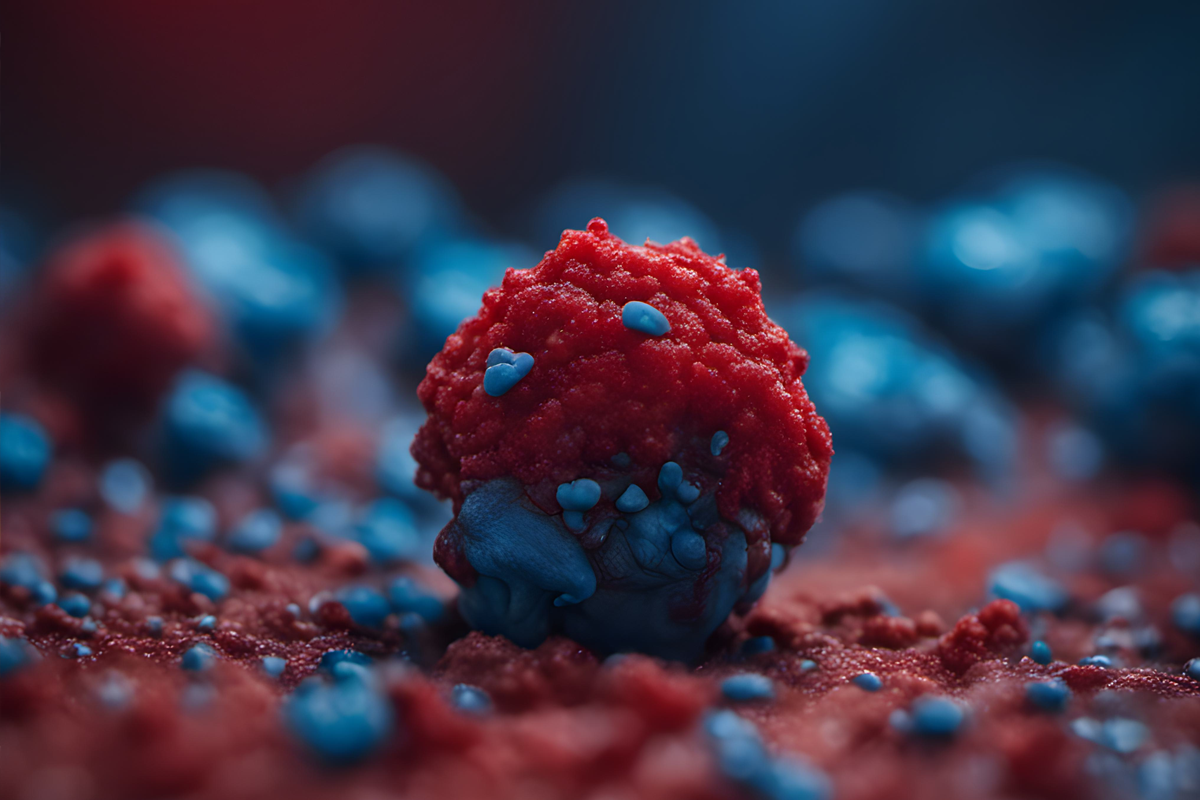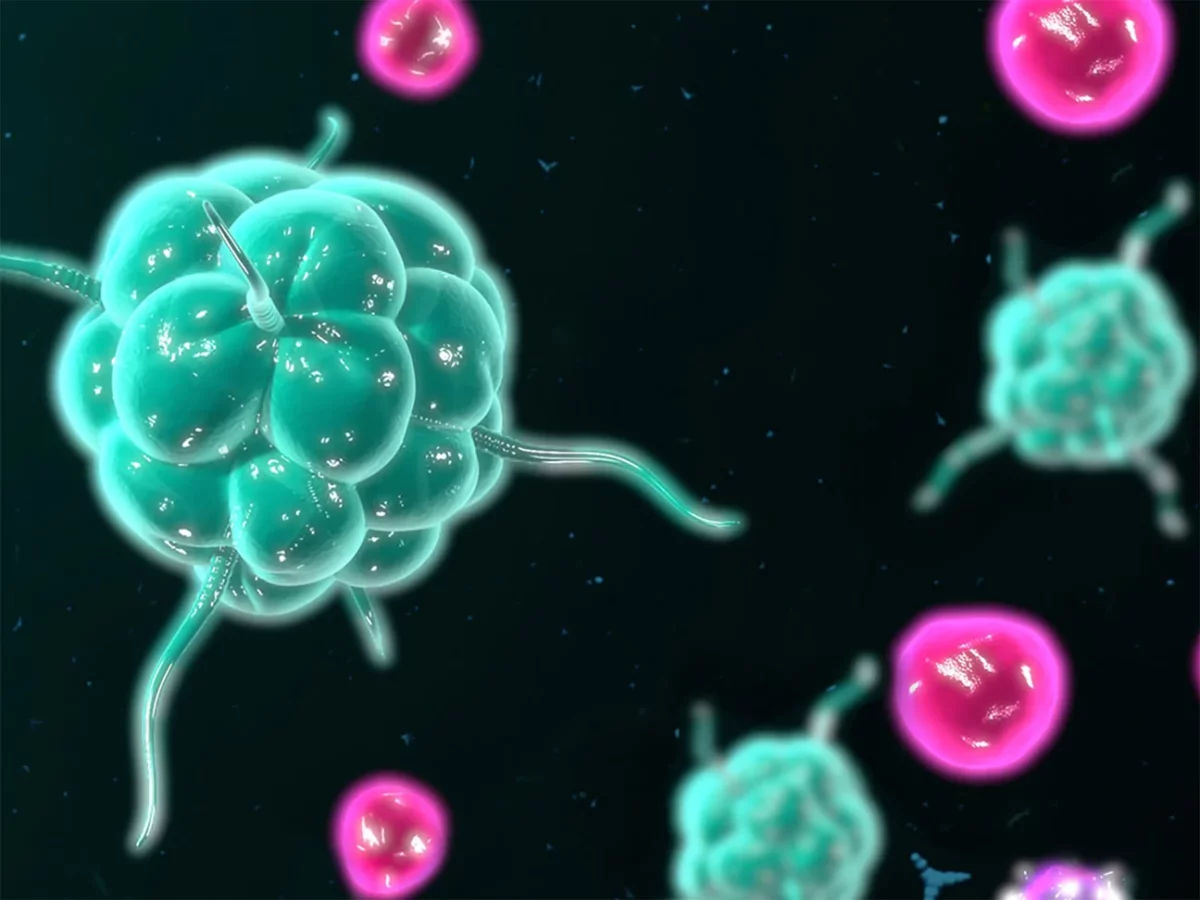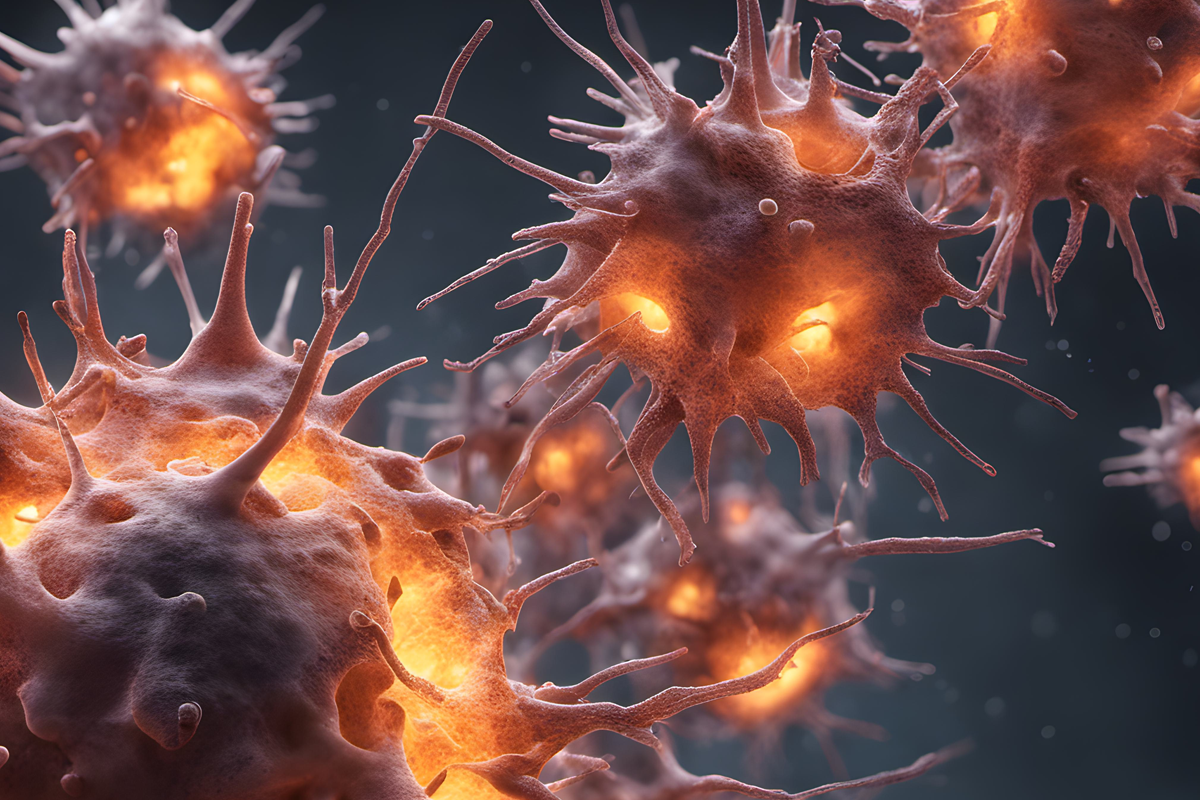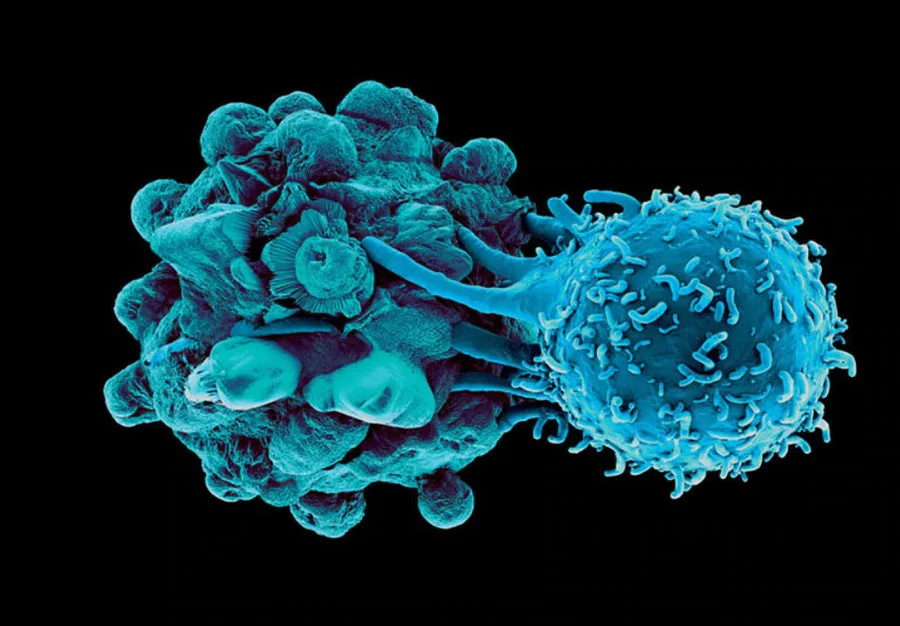Immunocine Dendritic Cell Therapy for Colorectal Cancers
Colorectal cancers have been on the rise and now afflict more than 2 million humans per year, more than 150,000 Americans per year1, and is simultaneously becoming one of the deadliest cancer categories across genders2, 3.
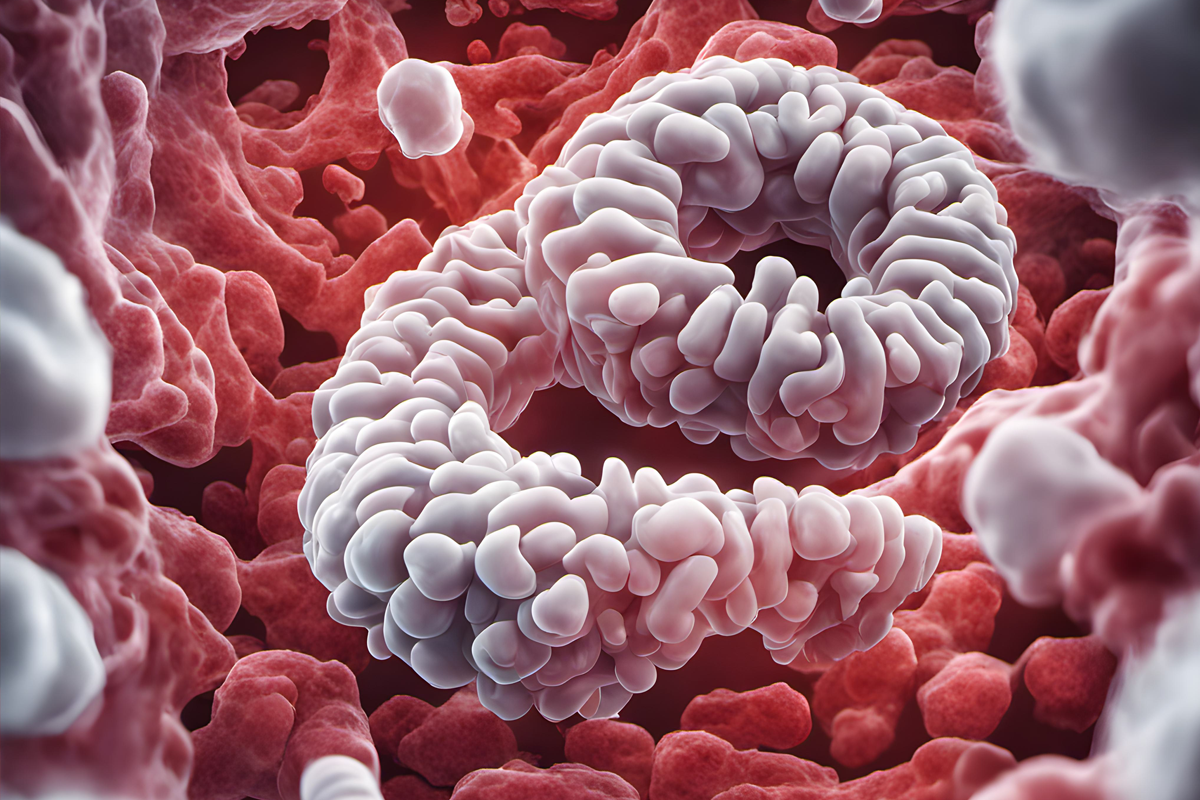
In a room with 50 people, it is a sobering reality to understand that 3-5 of them will have to deal with this scary and harsh obstacle4.

Understanding the scientific underpinnings driving such a cancer have become of paramount importance, as has creating novel therapies to combat a cancer that within the past 10 years has shown 2 year relapse rates (to some degree) in around 70% of treated (e.g., chemo, radiation) individuals5 and a 5-year survival rate close to 10%6. Early recurrence can develop at a number of distal organs, including the liver and lung7, and represent a truly tough-to-overcome situation.

How colorectal cancer can seem to easily avoid detection and attack by the body’s natural defense system (a.k.a. the immune system) is critical to developing better treatment offerings, and considering that, some recent scientific findings stand to catalyze our abilities to treat this category of cancers.

As “immunotherapy” has become a more popular treatment modality over the past decade, it has been eloquently elucidated in a number of scientific publications that Dendritic Cells (DC) are largely dysfunctional in many colorectal cancer diagnoses8, 9, 10, 11, 12. On the other side of the coin, therapeutic use of DC in preclinical models of colorectal cancers has shown promise13, 14, 15, but has largely still fallen short in human clinical trials16, 17. Despite the fact that properly functioning DC has been linked to improved survival in colorectal cancers18, 19, 20, 21, the sharp reality is that medicinal efforts in utilizing these cells to treat colorectal cancers have simply not been up to par and wholly unacceptable. Until now that is.
After keystone discoveries were made years ago in the Texas Medical Center regarding DC and how they function, studies have only accelerated through layers of validation and clinical relevance. It is not simply enough to just use DC, which can actually make things worse if not used correctly22, 23, but that they are used wisely and optimally to detect and fight a threat such as cancer24, 25, 26, 27. It is extremely important to note that references 24-27 cited here are referencing the specific Immunocine immunotherapy technology used to generate a patient’s personalized DC anti-cancer treatment. A quick summary of why this approach is so effective can be found here, and we invite you read more about the Immunocine science at your convenience. While work continues through the FDA trials in very tough to treat cancers (such as our Pancreatic Cancer trial and Glioblastoma trial), we have seen evidences of equivalent successes in a variety of difficult-to-overcome cancers (including colorectal), and offer this cutting-edge science today at our Cancer Center in Cancun, Mx.

References
1. Fabregas, J.C., Ramnaraign, B. & George, T.J. Clinical Updates for Colon Cancer Care in 2022. Clin Colorectal Cancer 21, 198-203 (2022).
2. Hossain, M.S. et al. Colorectal Cancer: A Review of Carcinogenesis, Global Epidemiology, Current Challenges, Risk Factors, Preventive and Treatment Strategies. Cancers (Basel) 14 (2022).
3. Institute, N.C. Why is Colorectal Cancer Rising Rapidly Among Young Adults. 2021 [cited]Available from: https://www.cancer.gov/news-events/cancer-currents-blog/2020/colorectal-cancer-rising-younger-adults
4. Kasi, P.M. et al. Rising Proportion of Young Individuals With Rectal and Colon Cancer. Clin Colorectal Cancer 18, e87-e95 (2019).
5. Shiba, S. et al. Safety and Efficacy of Re-irradiation With Carbon-ion Radiotherapy for Pelvic Recurrence of Rectal Cancer After Preoperative Chemoradiotherapy: A Retrospective Analysis. In Vivo 36, 2473-2480 (2022).
6. Rawla, P., Sunkara, T. & Barsouk, A. Epidemiology of colorectal cancer: incidence, mortality, survival, and risk factors. Prz Gastroenterol 14, 89-103 (2019).
7. Ryuk, J.P. et al. Predictive factors and the prognosis of recurrence of colorectal cancer within 2 years after curative resection. Ann Surg Treat Res 86, 143-151 (2014).
8. Gessani, S. & Belardelli, F. Immune Dysfunctions and Immunotherapy in Colorectal Cancer: The Role of Dendritic Cells. Cancers (Basel) 11 (2019).
9. Ho, W.W. et al. Dendritic cell paucity in mismatch repair-proficient colorectal cancer liver metastases limits immune checkpoint blockade efficacy. Proc Natl Acad Sci U S A 118 (2021).
10. Legitimo, A., Consolini, R., Failli, A., Orsini, G. & Spisni, R. Dendritic cell defects in the colorectal cancer. Hum Vaccin Immunother 10, 3224-3235 (2014).
11. Pryczynicz, A. et al. Dysfunctions in the Mature Dendritic Cells Are Associated with the Presence of Metastases of Colorectal Cancer in the Surrounding Lymph Nodes. Gastroenterol Res Pract 2016, 2405437 (2016).
12. Takimoto, R. et al. Prognostic Factors for Colorectal Cancer Patients Treated With Combination of Immune-cell Therapy and First-line Chemotherapy: A Retrospective Study. Anticancer Res 39, 4525-4532 (2019).
13. Florencia Soler, M. et al. Triiodothyronine-stimulated dendritic cell vaccination boosts antitumor immunity against murine colon cancer. Int Immunopharmacol 110, 109016 (2022).
14. Paladhi, A., Daripa, S., Mondal, I. & Hira, S.K. Targeting thymidine phosphorylase alleviates resistance to dendritic cell immunotherapy in colorectal cancer and promotes antitumor immunity. Front Immunol 13, 988071 (2022).
15. Zhang, J., Wang, L., Li, S., Gao, X. & Liu, Z. CD40 monoclonal antibody and OK432 synergistically promote the activation of dendritic cells in immunotherapy. Cancer Cell Int 22, 216 (2022).
16. Espanol-Rego, M. et al. A Phase I-II multicenter trial with Avelumab plus autologous dendritic cell vaccine in pre-treated mismatch repair-proficient (MSS) metastatic colorectal cancer patients; GEMCAD 1602 study. Cancer Immunol Immunother (2022).
17. Kajihara, M. et al. Dendritic cell-based cancer immunotherapy for colorectal cancer. World J Gastroenterol 22, 4275-4286 (2016).
18. Ambe, K., Mori, M. & Enjoji, M. S-100 protein-positive dendritic cells in colorectal adenocarcinomas. Distribution and relation to the clinical prognosis. Cancer 63, 496-503 (1989).
19. Dadabayev, A.R. et al. Dendritic cells in colorectal cancer correlate with other tumor-infiltrating immune cells. Cancer Immunol Immunother 53, 978-986 (2004).
20. Kiessler, M. et al. Tumor-infiltrating plasmacytoid dendritic cells are associated with survival in human colon cancer. J Immunother Cancer 9 (2021).
21. Kusume, A. et al. Suppression of dendritic cells by HMGB1 is associated with lymph node metastasis of human colon cancer. Pathobiology 76, 155-162 (2009).
22. Hsu, Y.L. et al. Interaction between Tumor-Associated Dendritic Cells and Colon Cancer Cells Contributes to Tumor Progression via CXCL1. Int J Mol Sci 19 (2018).
23. Michielsen, A.J. et al. Tumour tissue microenvironment can inhibit dendritic cell maturation in colorectal cancer. PLoS One 6, e27944 (2011).
24. Halpert, M.M. et al. MHC class I and II peptide homology regulates the cellular immune response. FASEB J 34, 8082-8101 (2020).
25. Konduri, V. et al. Dendritic cell vaccination plus low-dose doxorubicin for the treatment of spontaneous canine hemangiosarcoma. Cancer Gene Ther 26, 282-291 (2019).
26. Konduri, V. et al. Chemo-immunotherapy mediates durable cure of orthotopic Kras(G12D)/p53(-/-) pancreatic ductal adenocarcinoma. Oncoimmunology 5, e1213933 (2016).
27. Liang, D. et al. AIMp1 Potentiates T(H)1 Polarization and Is Critical for Effective Antitumor and Antiviral Immunity. Front Immunol 8, 1801 (2017).
READ THIS NEXT
On Air with Immunocine: Matt Halpert Joins Haylie Pomroy to Discuss the Future of Cancer Treatment
Listen to this Episode on Apple Podcasts Listen to this Episode on Spotify In this episode of the Hope and Help for Fatigue and Chronic Illn
Read MoreLife After Cancer: Kevin’s Journey with Stage 2C Melanoma Cancer
Kevin, an avid dirt biker and owner of a excavation company operating heavy machinery, faced his toughest challenge not in the wild but in a
Read MoreDr. Nasha Winters’ Mission to Create a New Standard of Cancer Treatment
For decades, Dr. Nasha Winters has been a dynamic force in the field of integrative oncology with an emphasis on the metabolic approach to c
Read More






